|
Books Should Be Free Loyal Books Free Public Domain Audiobooks & eBook Downloads |
|
|
Books Should Be Free Loyal Books Free Public Domain Audiobooks & eBook Downloads |
|
Books on Politics |
|---|
|
Book type:
Sort by:
View by:
|
By: John Ruskin (1819-1900) | |
|---|---|
 Unto this Last: Four Essays on the First Principles of Political Economy
Unto this Last: Four Essays on the First Principles of Political Economy
John Ruskin (1819 – 1900) is best known for his work as an art critic and social critic, but is remembered as an author, poet and artist as well. Unto This Last is an important work of political economic though that influenced Gandhi, among others. (Hugh McGuire/Wikipedia) | |
By: John Locke (1632-1704) | |
|---|---|
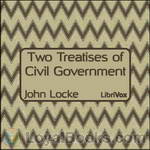 Two Treatises of Civil Government
Two Treatises of Civil Government
The Two Treatises of Civil Government is a work of political philosophy published anonymously in 1689 by John Locke. The First Treatise is an extended attack on Sir Robert Filmer’s Patriarcha, which argued for a divinely-ordained, hereditary, absolute monarchy. The more influential Second Treatise outlines a theory of civil society based on natural rights and contract theory. Locke begins by describing the “state of nature,” and goes on to explain the hypothetical rise of property and civilization, asserting that the only legitimate governments are those which have the consent of the people... | |
By: Frances Burney (1752-1840) | |
|---|---|
 The Wanderer
The Wanderer
This is the fourth and final novel by Fanny Burney, the author of Evelina, Cecilia, and Camilla. "Who is "Miss Ellis?" Why did she board a ship from France to England at the beginning of the French revolution? Anyway, the loss of her purse made this strange "wanderer" dependent upon the charity of some good people and, of course, bad ones. But she always comforts herself by reminding herself that it's better than "what might have been..." This is not only a mystery, not at all. It's also a romance which reminds readers of novels by Jane Austen... | |
By: William Morris (1834-1896) | |
|---|---|
 News From Nowhere
News From Nowhere
News from Nowhere (1890) is a classic work combining utopian socialism and soft science fiction written by the artist, designer and socialist pioneer William Morris. In the book, the narrator, William Guest, falls asleep after returning from a meeting of the Socialist League and awakes to find himself in a future society based on common ownership and democratic control of the means of production. In this society there is no private property, no big cities, no authority, no monetary system, no divorce, no courts, no prisons, and no class systems... | |
By: Peter Kropotkin (1842-1921) | |
|---|---|
 The Conquest of bread
The Conquest of bread
In this work, Kropotkin points out what he considers to be the fallacies of the economic systems of feudalism and capitalism, and how he believes they create poverty and scarcity while promoting privilege. He goes on to propose a more decentralised economic system based on mutual aid and voluntary cooperation, asserting that the tendencies for this kind of organisation already exist, both in evolution and in human society. | |
By: Brooks Adams (1848-1927) | |
|---|---|
 The Theory of Social Revolutions
The Theory of Social Revolutions
Brooks Adams (1848- 1927), was an American historian and a critic of capitalism. He believed that commercial civilizations rise and fall in predictable cycles. First, masses of people draw together in large population centers and engage in commercial activities. As their desire for wealth grows, they discard spiritual and creative values. Their greed leads to distrust and dishonesty, and eventually the society crumbles. In The Law of Civilisation and Decay (1895), Adams noted that as new population centers emerged in the west, centers of world trade shifted from Constantinople to Venice to Amsterdam to London... | |
By: Hilaire Belloc (1870-1953) | |
|---|---|
 The Free Press
The Free Press
I propose to discuss in what follows the evil of the great modern Capitalist Press, its function in vitiating and misinforming opinion and in putting power into ignoble hands; its correction by the formation of small independent organs, and the probably increasing effect of these last. (Introduction by Hilaire Belloc) | |
By: United States Supreme Court | |
|---|---|
 Civil Rights and Equal Protection Cases 1856-1948
Civil Rights and Equal Protection Cases 1856-1948
Landmark United States Supreme Court decisions focusing on civil rights and equal protection between 1856 and 1948. | |
By: Booker T. Washington (1856-1915) | |
|---|---|
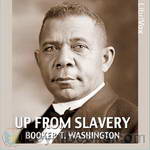 Up From Slavery
Up From Slavery
Up From Slavery is the 1901 autobiography of Booker T. Washington detailing his slow and steady rise from a slave child during the Civil War, to the difficulties and obstacles he overcame to get an education at the new Hampton University, to his work establishing vocational schools—most notably the Tuskegee Institute in Alabama—to help black people and other disadvantaged minorities learn useful, marketable skills and work to pull themselves, as a race, up by the bootstraps. He reflects on the generosity of both teachers and philanthropists who helped in educating blacks and native Americans... | |
By: Marcus Tullius Cicero | |
|---|---|
 The Philippics
The Philippics
A philippic is a fiery, damning speech delivered to condemn a particular political actor. The term originates with Demosthenes, who delivered an attack on Philip II of Macedon in the 4th century BCE.Cicero consciously modeled his own attacks on Mark Antony, in 44 BC and 43 BC, on Demosthenes’s speeches, and if the correspondence between M. Brutus and Cicero are genuine [ad Brut. ii 3.4, ii 4.2], at least the fifth and seventh speeches were referred to as the Philippics in Cicero’s time. They were also called the Antonian Orations by Aulus Gellius... | |
By: Winston S. Churchill | |
|---|---|
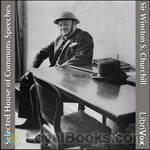 Selected House of Commons Speeches
Selected House of Commons Speeches
Sir Winston Leonard Spencer Churchill (1874 – 1965) was a British politician known chiefly for his leadership of the United Kingdom during World War II. He served as Prime Minister of the United Kingdom from 1940 to 1945 and again from 1951 to 1955. A noted statesman and orator, Churchill was also an officer in the British Army, a historical writer, and an artist. | |
By: H. Rider Haggard (1856-1925) | |
|---|---|
 The Brethren
The Brethren
Set in the days of the Crusaders, this books tells of a young maiden named Rosamund, and her twin cousins. Godwin is the grey eyed thoughtful man, and Wulf is the blue eyed warrior. They are both knights of England and they are both in love with their fair cousin. But the riddle of the story is which does Rosamund love?The adventure begins when Rosamund is taken from England and carried to the East. The plot thickens as the two young knights follow her in hopes of rescuing her from the Muslim leader, Saladin... | |
By: Jeremy Bentham (1748-1832) | |
|---|---|
 Offences Against One's Self: Paederasty
Offences Against One's Self: Paederasty
Jeremy Bentham (1748-1832) was an English jurist, philosopher, and legal and social reformer. He was a political radical and a leading theorist in Anglo-American philosophy of law. He is best known as an early advocate of utilitarianism and animal rights who influenced the development of liberalism. The essay Offences Against One’s Self (c. 1785), argued for the liberalisation of laws prohibiting homosexuality. The essay remained unpublished during Bentham’s lifetime for fear of offending public morality... | |
 An Introduction to the Principles of Morals and Legislation
An Introduction to the Principles of Morals and Legislation
Jeremy Bentham's Introduction to the Principles of Morals and Legislation, a classic text in modern philosophy and jurisprudence, first published in 1789, focuses on the principle of utility and how this view of morality ties into legislative practices. Bentham's ambition in life was to create a complete Utilitarian code of law. The philosophy of utilitarianism argues that the right act or policy is that which would cause "the greatest good for the greatest number of people", also known as "the greatest happiness principle", or the principle of utility... | |
By: George Bernard Shaw (1856-1950) | |
|---|---|
 Major Barbara
Major Barbara
George Bernard Shaw's Major Barbara focuses on the family of aristocratic Lady Britomart Undershaft and her estranged husband Andrew, a millionaire armaments manufacturer. Their daughters Sarah and Barbara are both engaged to be married, and Lady Britomart decides to ask Andrew for monetary support. Barbara is a Major in the Salvation Army, and agrees to let her father visit the mission in the East End of London where she works. In exchange, she agrees to visit his munitions factory. The conflict between Barbara's philanthropic idealism and her father's hard-headed capitalism clash when he decides he wants to fund the Salvation Army... | |
By: Owen Wister (1860-1938) | |
|---|---|
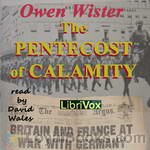 The Pentecost of Calamity
The Pentecost of Calamity
Nonfiction. Appalled by the savagery of World War I, Owen Wister in 1915 published an attempt to move the United States out of neutrality into joining the Allies against Germany. His aim was the quicker defeat of that nation. (Wister: “the new Trinity of German worship – the Super-man, the Super-race, and the Super-state.”) He was but one of many literary personages who joined in this effort. A moving quote: “Perhaps nothing save calamity will teach us what Europe is thankful to have learned again – that some things are worse than war, and that you can pay too high a price for peace; but that you cannot pay too high for the finding and keeping of your own soul.” | |
By: Thames Williamson | |
|---|---|
 Problems in American Democracy
Problems in American Democracy
Problems in American Democracy is a very detailed, specific explanation of some of the underlying and surface problems of a democracy system of government, particularly of the American form of democracy. Though lengthy, it is a great read for people who want to learn more about different types of government and the foundations of our own government in the United States of America. | |
By: Carl von Clausewitz (1780-1831) | |
|---|---|
 On War
On War
A classic work on military strategy by a veteran of the Napoleonic Wars. The author's style is dialectical: he makes two strong but opposing statements and then draws them together to describe many facets of war. Free of technical jargon, and suitable for modern readers. This audiobook is based on a 1909 English translation. | |
By: United States Arms Control and Disarmament Agency | |
|---|---|
 Worldwide Effects of Nuclear War: Some Perspectives
Worldwide Effects of Nuclear War: Some Perspectives
This is a concise yet thorough explanation of what might happen to our world in the aftermath of a nuclear war. The myriad of potential effects will be global and wide-spread, and the potentials are glazed over in this short work. | |
By: William Blackstone | |
|---|---|
 Commentaries on the Laws of England (1765)
Commentaries on the Laws of England (1765)
The Commentaries on the Laws of England are an influential 18th century treatise on the common law of England by Sir William Blackstone, originally published by the Clarendon Press at Oxford, 1765-1769.The Commentaries were long regarded as the leading work on the development of English law and played a role in the development of the American legal system. They were in fact the first methodical treatise on the common law suitable for a lay readership since at least the Middle Ages. The common law of England has relied on precedent more than statute and codifications and has been far less amenable than the civil law, developed from the Roman law, to the needs of a treatise... | |
By: Voltairine de Cleyre | |
|---|---|
 Selected Essays
Selected Essays
Voltairine de Cleyre (1866–1912) was, according to Emma Goldman, “the most gifted and brilliant anarchist woman America ever produced.” Today she is not widely known as a consequence of her short life. De Cleyre was especially influenced by Thomas Paine, Mary Wollstonecraft and Clarence Darrow. After the hanging of the Haymarket protesters in 1887, she became an anarchist. “Till then I believed in the essential justice of the American law of trial by jury,” she wrote in an autobiographical essay, “After that I never could”... | |
By: José Rizal (1861-1896) | |
|---|---|
 Noli Me Tangere (The Social Cancer)
Noli Me Tangere (The Social Cancer)
Noli Me Tangere (Latin for Touch Me Not) is a novel by the National Hero of the Philippines, Dr. José Rizal. It was originally written in Spanish, and first published in Germany in 1887. Noli Me Tangere exposed the corruption and abuse of the Spanish government and clergy towards the Philippine people and the ills of the Philippine society. This novel, and its sequel El Filibusterismo were banned in many parts of the Islands. Rizal was later arrested for inciting rebellion, based largely on his writings, and was excuted in Manila... | |
By: Fabian Franklin | |
|---|---|
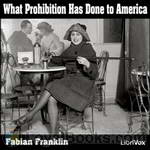 What Prohibition Has Done to America
What Prohibition Has Done to America
In What Prohibition Has Done to America, Fabian Franklin presents a concise but forceful argument against the Eighteenth Amendment of the U.S. Constitution. Beginning in 1920, this Amendment prohibited the sale and manufacture of alcoholic beverages in the United States, until it was repealed in 1933. Franklin contends that the Amendment “is not only a crime against the Constitution of the United States, and not only a crime against the whole spirit of our Federal system, but a crime against the first principles of rational government... | |
By: Goldsworthy Lowes Dickinson (1862-1932) | |
|---|---|
 The Greek View of Life
The Greek View of Life
“With the Greek civilisation beauty perished from the world. Never again has it been possible for man to believe that harmony is in fact the truth of all existence.”This elegantly-written work provides a splendid introduction to the Greeks of the classic period: how they thought, wrote, and organised their lives and loves. Although it dates from the 1890s, there is very little about it that has dated. To its author’s credit, the subject of “Greek love” is dealt with in a sane and factual context - despite the judicial assassination of Oscar Wilde going on in the background... | |
By: Mohandas Karamchand Gandhi | |
|---|---|
 Third Class in Indian Railways
Third Class in Indian Railways
Mohandas Karamchand Gandhi (1869 – 1948) was the pre-eminent political and spiritual leader of India during the Indian independence movement. He was the pioneer of satyagraha — resistance to tyranny through mass civil disobedience. This philosophy was firmly founded upon ahimsa, or total nonviolence, and led India to independence and inspired movements for civil rights and freedom across the world. Gandhi is commonly known around the world as Mahatma Gandhi and in India also as Bapu. He is officially honoured in India as the Father of the Nation; his birthday, 2 October, is commemorated there as Gandhi Jayanti, a national holiday. | |
By: Elizabeth Gurley Flynn (1890-1964) | |
|---|---|
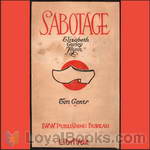 Sabotage
Sabotage
Elizabeth Gurley Flynn (1890-1964) was a leading American socialist and feminist. Her book “Sabotage, the conscious withdrawal of the workers’ industrial efficiency” was written to explain the utility and legality of sabotage. | |
By: Mrs. Eugenia Dunlap Potts (1840-1912) | |
|---|---|
 Historic Papers on the Causes of the Civil War
Historic Papers on the Causes of the Civil War
While claiming to be historical papers on the causes of the United States Civil War, the author indulges in some Slavery Apologetics. An interesting view from a southern lady on what caused the war and why the south was the underdog. | |
By: Frank Norris (1870-1902) | |
|---|---|
 The Octopus
The Octopus
Frank Norris based his 1901 novel The Octopus (A Story of California) on the Mussel Slough Tragedy of 1880, a bloody conflict between ranchers and agents of the Southern Pacific Railroad. The central issue was over the ownership of the ranches, which the farmers had leased from the railroad nearly ten years earlier with intentions of eventually purchasing the land. Although originally priced at $2.50 to $5 per acre, the railroad eventually opened the land for sale at prices adjusted for land improvements; the railroad’s attempts to take possession of the land led the ranchers to defend themselves as depicted in the book. | |
By: George Washington Plunkitt (1842-1924) | |
|---|---|
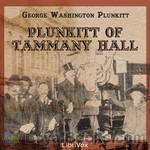 Plunkitt of Tammany Hall
Plunkitt of Tammany Hall
“I seen my opportunities and I took ‘em.”, George Washington Plunkitt of Tamminy Hall. There’s honest graft and dishonest graft according to Plunkitt. Listen to this candid discourse from a 19th century politician, and decide for yourself if things have changed. | |
By: Doris Stevens (1892-1963) | |
|---|---|
 Jailed for Freedom
Jailed for Freedom
A first-hand account of the 1913-1919 campaign of American suffragists, detailing their treatment at the hands of the courts, and the true conditions of their incarceration. | |
By: Susan Glaspell (1876-1948) | |
|---|---|
 Trifles
Trifles
On the surface, this short play is a slice-of-life story about a murder investigation in the rural United States. However, it is also a story about the relationships between men and women, husbands and wives, and the often-overlooked "trifles" which can say so much about a person's life. | |
By: Jane Addams (1860-1935) | |
|---|---|
 Twenty Years at Hull-House
Twenty Years at Hull-House
Jane Addams was the first American woman to be awarded the Nobel Peace Prize. In a long, complex career, she was a pioneer settlement worker and founder of Hull-House in Chicago, public philosopher (the first American woman in that role), author, and leader in woman suffrage and world peace. She was the most prominent woman of the Progressive Era and helped turn the nation to issues of concern to mothers, such as the needs of children, public health and world peace. She emphasized that women have a special responsibility to clean up their communities and make them better places to live, arguing they needed the vote to be effective... | |